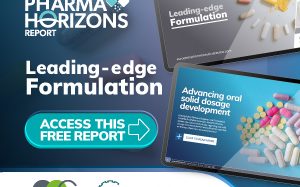Investigational immunotherapy MPDL3280A doubled the likelihood of survival compared with chemotherapy in people with NSCLC
Posted: 14 May 2015 |
Roche has announced interim results from a global, randomised Phase II study (POPLAR) of MPDL3280A in people with previously treated NSCLC…


Roche has announced interim results from a global, randomised Phase II study (POPLAR) in people with previously treated NSCLC.


The study showed the investigational cancer immunotherapy MPDL3280A doubled the likelihood of survival in people whose cancer expressed the highest levels of PD-L1 (programmed death ligand-1) compared with docetaxel chemotherapy. An improvement in survival was also observed in people who had medium and high or any level of PD-L1 expression, as characterised by a test being developed by Roche. MPDL3280A was generally well tolerated and adverse events were consistent with what has been previously reported for MPDL3280A in NSCLC. Updated results will be presented in an oral session at the 51st Annual Meeting of the American Society of Clinical Oncology (ASCO).
Roche has three Phase II and six Phase II studies of MPDL3280A ongoing
“In our study of MPDL3280A in previously treated lung cancer, the amount of PD-L1 expressed by a person’s cancer correlated with improvement in survival,” said Sandra Horning, MD, Chief Medical Officer and Head of Global Product Development. “The goal of PD-L1 as a biomarker is to identify people most likely to experience improved overall survival with MPDL3280A alone and which people may be appropriate candidates for a combination of medicines.”
In February 2015, MPDL3280A received Breakthrough Therapy Designation from the FDA for the treatment of people whose NSCLC expresses PD-L1 and who progressed during or after standard treatments (e.g., platinum-based chemotherapy and appropriate targeted therapy for EGFR mutation-positive or ALK-positive disease). Roche is discussing the interim data from POPLAR with the FDA as part of Breakthrough Therapy Designation in lung cancer. Roche currently has three Phase II and six Phase III studies of MPDL3280A ongoing in various kinds of lung cancer.








